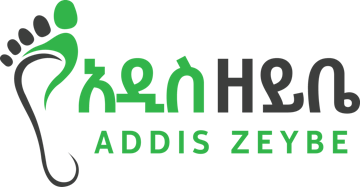In the following summary, we cover major disinformation trends observed in the fourth week of September along with important recommendations.
The closure of Jimma airport
One of the major viral posts that were circulating on Facebook was a false claim reporting Jimma Abajifar Airport had a bomb attack and stopped giving service. It also adds that several were injured and one person has died.
However, Jimma Zone Communication Bureau later announced on its Facebook page that the information was false and that flights were not compromised. There were also pictures of the airport workers, attached with the statement, confirming the airport was operating as usual.
Controversies over the resignation of the Minister
The other controversial issue that was circulating on social media was about the reason behind the resignation of Filsen Abdulahi, the former Minister of Women, Children and Youth. In the letter of resignation submitted to the prime minister and posted on her official Facebook account, she stated her reason saying “Any situation that compromises my ethics is contrary to my convictions and values, and betraying these beliefs is a breach of trust to myself and our citizens.” She explained the reason for her immediate resignation is concerned with her personal nature and conditions that weigh heavily on her conscience.
However, there had been different speculations, on social media, about her decision. On one hand, some argue that she is leaving because of language problems and that the Ministry would be closed after the new formation of government. On the other hand, some say that she is leaving because she is affiliated with the Ogaden national liberation front, which dropped out from the Election conducted in the Somali Regional State.
The highest and lowest points in Africa
One of the misinformative claims that grabbed our attention this week was a post shared on Facebook and Telegram, informing its followers that the highest and lowest points in Africa are found in Ethiopia.
The post asserts that the Simien Mountains of Ethiopia are the peak or the highest point in Africa and the Danakil Depression is the lowest point in Africa.
Nevertheless, Haqcheck looked into the post and confirmed that the highest peak in Africa is Mount Kilimanjaro found in Tanzania while Lake Assal found in Djibouti is the lowest place in Africa. Both places are not found in Ethiopia making Haqcheck rate the post as False.
Recommendation
HaqCheck urges the public and social media users to look for information from credible and original sources, official statements, updates, and clarifications from authorities regarding current issues, controversial matters, and social media claims. And should refrain from disseminating conspiracies and unconfirmed rumors.
The general public should be provided with sufficient information and updates regarding ongoing issues in the country and media organizations and concerned authorities have the professional obligation to do so.
Government officials should have to be more transparent and state their ideas clearly for the general public.
Social media activists, pages, and bloggers should be careful about what they share. Especially when quoting another source, they have to make sure they use the right information and context.
---------------------------------------------------------------------------------------------------------------------------------------------------
HaqCheck is a local multilingual fact-checking project based in Ethiopia, formed inside Addis Zeybe’s newsroom, now Inform Africa’s Counter Disinformation Project - a board-led Civil Society Organization (CSO) - dedicated to verifying media contents from social to the mainstream. HaqCheck works in collaboration with media outlets to monitor media contents in English and four local languages (Amharic, Afaan Oromo, Tigrigna, and Somali).
This report is produced with the support of UNESCO under the #CoronavirusFacts: Addressing the ‘Disinfodemic’ on COVID-19 in conflict-prone Environments that the UNESCO Addis Ababa Office is implementing in Ethiopia with financial support from the European Union (EU). The designations employed and the presentation of material throughout this publication do not imply the expression of any opinion whatsoever on the part of UNESCO or the EU concerning the legal status of any country, territory, city, or area or of its authorities, or concerning the delimitation of its frontiers or boundaries. The ideas and opinions expressed in this publication are those of the authors and do not necessarily reflect the views of UNESCO or The European Union and do not commit these organizations in any way.


